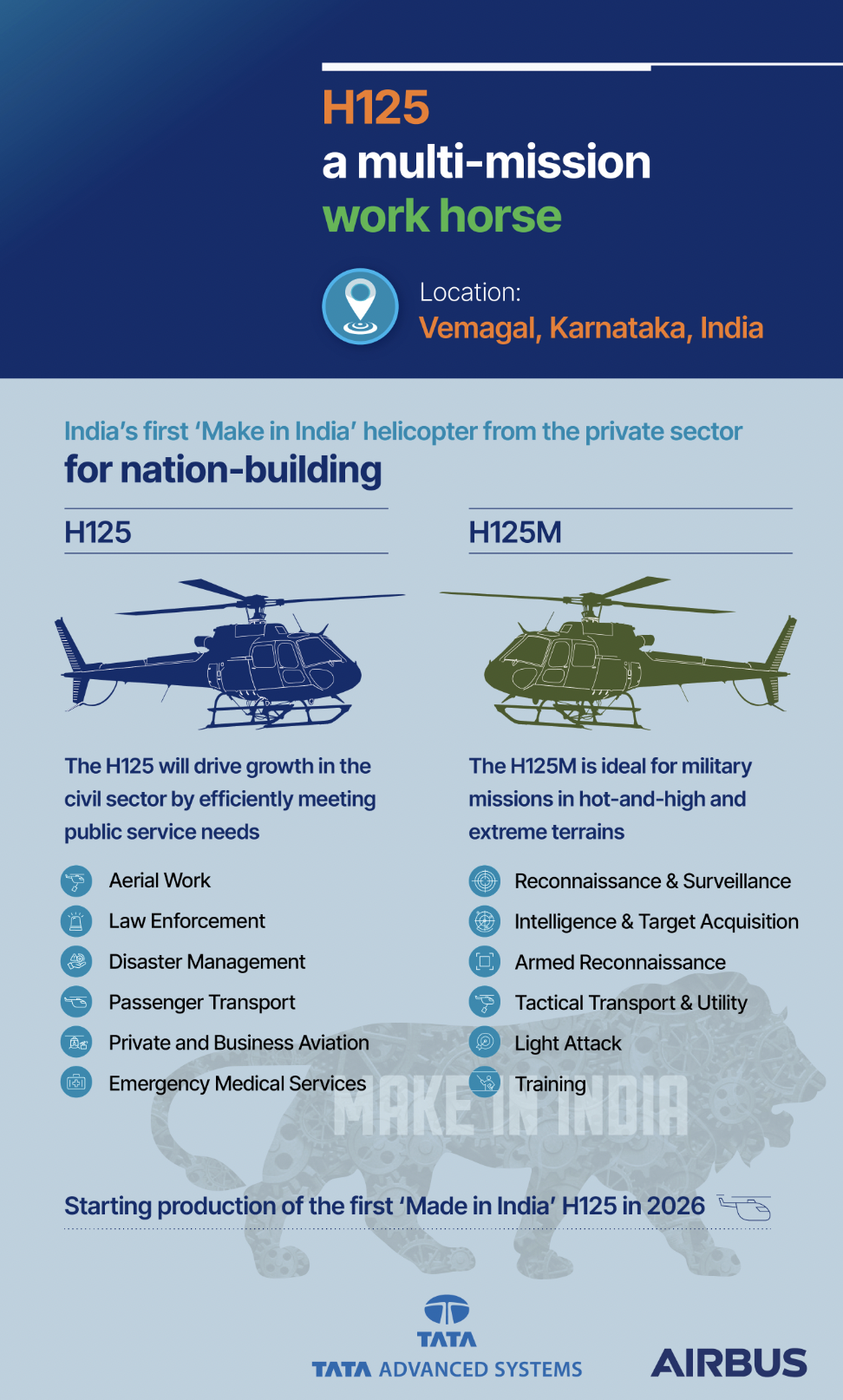India is set to manufacture its first locally assembled civil helicopter, with Airbus and Tata Advanced Systems Limited (TASL) announcing plans to establish a final assembly line for the Airbus H125. The facility, located in Vemagal, Karnataka, will deliver its first aircraft by early 2027.
The project marks a significant step in India’s aerospace ambitions, positioning the country as a regional hub for rotorcraft manufacturing. Alongside Airbus’ existing C295 military transport aircraft plant in Gujarat, the new site will become only the second major aircraft assembly line in the country.
How will the new Tata-Airbus facility function?
The H125, a single-engine helicopter with more than 40 million flight hours worldwide, is designed for use across civil and para-public roles including medical evacuation, disaster relief, tourism, policing and passenger transport. Known for its performance in “high-and-hot” conditions, it is the only helicopter to have landed on Mount Everest.

Airbus said the Indian line would also produce the H125M, a light military variant to replace India’s ageing Cheetah and Chetak helicopters. The model will incorporate indigenised components and technologies, aligning with New Delhi’s ‘Atmanirbhar Bharat’ initiative to reduce foreign reliance in defence.
TASL will handle assembly, integration, mechanical and electrical testing, and final flight trials. The project also establishes a dedicated radar, integration and testing facility at its Karnataka site, aimed at supporting future expansion.
How does the partnership fit into India’s aerospace strategy?
For Airbus, the move builds on six decades of operations in India. The company already sources about $1.4bn worth of aerostructures, doors and systems from the country annually. “India is an ideal helicopter country. A ‘Made in India’ helicopter will help develop this market and position helicopters as an essential tool for nation-building,” said Jürgen Westermeier, President and Managing Director of Airbus India and South Asia.
Sukaran Singh, CEO and Managing Director of TASL, described the project as a “proud moment” and noted it was Tata’s second assembly line with Airbus. “This will bolster both civil and defence requirements,” he said.
For India, the H125 assembly line signals progress in efforts to attract global manufacturers while building an indigenous supply chain that includes defence public sector undertakings, private industry and start-ups.
The partnership is expected to strengthen India’s aerospace ecosystem and create export potential for helicopters across South Asia, Africa and the Middle East. With India’s armed forces looking for light multi-role helicopters capable of operating along the Himalayan frontiers, the project also has strategic defence implications.
The venture appears in line with India’s ambition to become not just a buyer but a producer of high-end aerospace technologies.